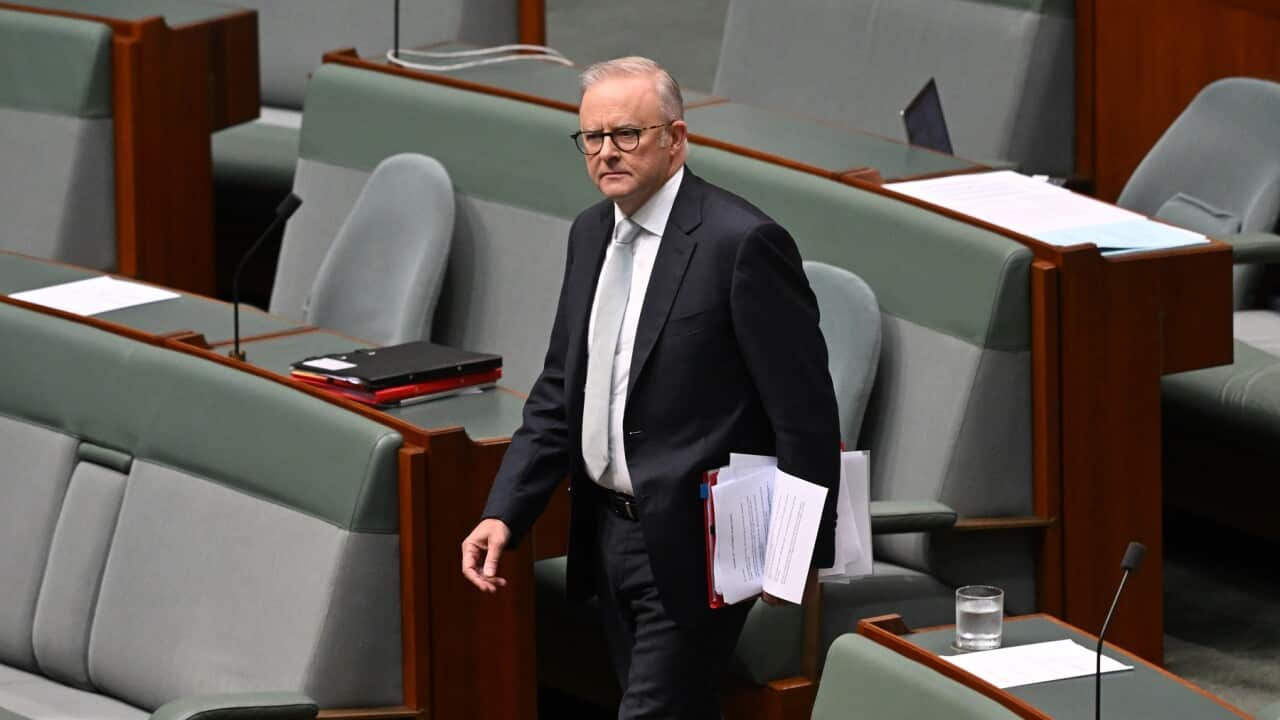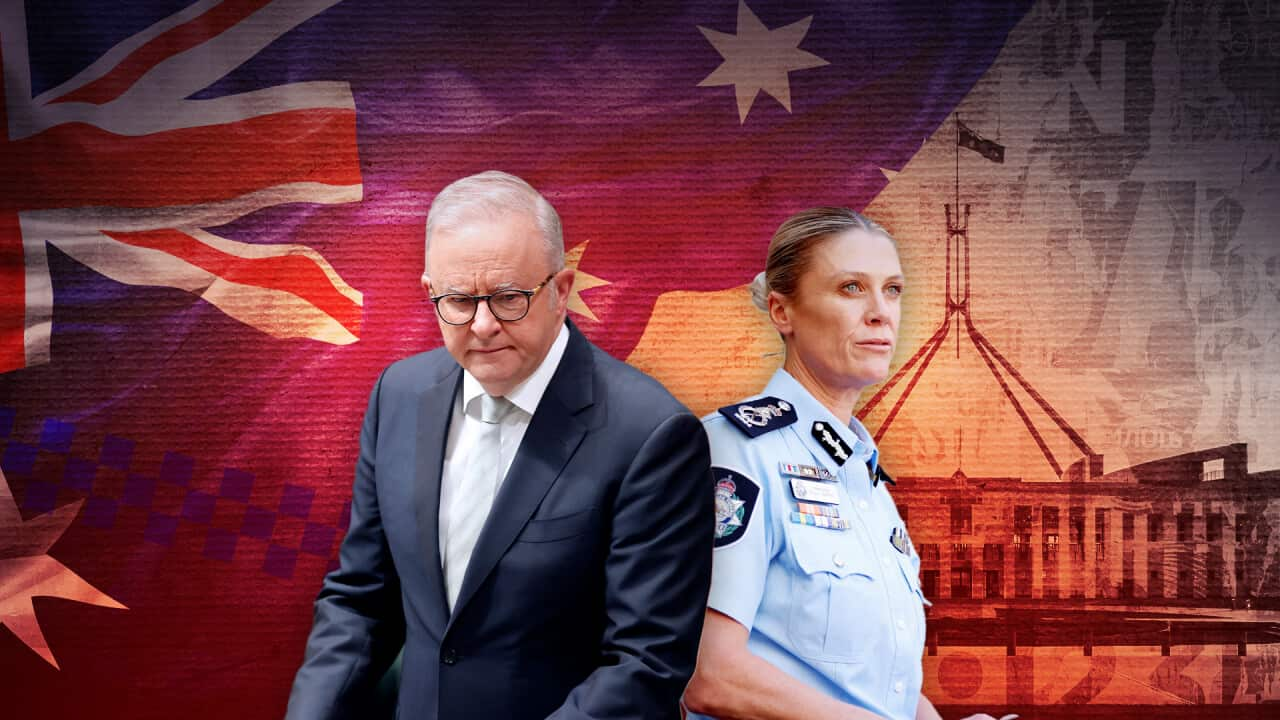Listen to Australian and world news, and follow trending topics with SBS News Podcasts
TRANSCRIPT
A report showing Australians are forecast to live longer and spend more years in good health in the next four decades - is expected to provide further challenges for government spending.
The Intergenerational Report to be released on Thursday [[August 24]] forecasting the economy over the next 40 years, shows government spending will rise by $140 billion or 5.6 percentage points of GDP by 2063.
Driving that increase will be health, aged care, the National Disability Insurance Scheme, defence and debt interest payments.
Treasurer Jim Chalmers says the slowing global economy will also have an impact.
"I think the softening of the Chinese economy is a substantial risk to the global economy and the economic conditions in China are some of the things that we monitor most closely, as we contemplate the global economic uncertainty that we're anticipating over the course of the next year or two."
Despite projected cost blowouts in government spending and a global economic downturn, Dr Chalmers has ruled out major tax changes this term to help pay for the spending.
But Opposition Treasury spokesperson Angus Taylor is not convinced that Labor will deliver on that commitment.
"This is a government where the answer to everything is more tax. That's their answer to everything, to take more of Australians incomes, to put the costs of the goods we're looking at behind us today up. That's their answer to everything, they want to tax small. We know the Treasurer wants to tax more because he keeps flying kites for tax increases. Now, right now what Australians need is to be able to make ends meet and taxing more is not the way to help Australians make ends meet."
However, outgoing Productivity Commissioner Michael Brennan says Australia needs to have a conversation about tax reform.
"I think changes to tax will always be a significant lever. We talked about it a bit in the Productivity Commission review. We didn't want to reinvent the Henry report, because I think it stands the test of time as the bible on the directions that tax reform ought to go. We did count a few options that government may have around corporate tax reform, that sort of thing. So yes tax is important, the tax debate is very important."
The Intergenerational Report also shows the government will spend less to fund the age pension even though the total number of Australians reaching retirement age is predicted to double.
Around 17 million Australians are estimated to collectively own around $3.5 trillion in superannuation assets in the next 40 years.
Dr Chalmers says the report shows the superannuation scheme has worked to fund Australian retirements and save government money.
"This is the intergenerational genius of superannuation at work, providing decent retirement incomes for people at the same time as we take the pressure off the pension. This is obviously one of the things that we can be incredibly proud of being the intergenerational report."
Australia is expected to narrowly avoid a recession in the next year despite the high inflation and global economic pressures.
Chief Economist at E-Y Oceania, Cherelle Murphy, says it appears the Reserve Bank's 12 interest rate hikes are working.
"It is very tricky. The Reserve Bank is trying to slow the economy enough such that we get inflation down, but not so much that they cause unemployment to rise. But the good news is that so far, it's actually working. You know, we have seen the unemployment rate remain fairly low and stable, in fact very low and stable and at the same time, inflation is starting to come down a bit. So putting that together with fiscal policy as well, it looks like actually the economy is evolving fairly well, and certainly to the government's plans."
The government has also now embarked on a review of competition policy settings to boost the productivity of the Australian economy and people's living standards.
The two-year review will examine laws around business mergers and acquisitions to ensure competition is not dampened and consumers are not worse off.
Minister for Competition Andrew Leigh says Australia's productivity growth has been lousy.
"Over the last couple of decades, we've seen a rise in market concentration. We've seen an increase in mark ups, the gap between cost and prices. We've seen a fall the share of Australians that switch jobs and get the benefits in higher earnings that come from moving to a new job. All of this suggests the Australian economy may have become less dynamic and that indeed may be a reason why as Jim has just pointed out the last decade was the lousiest decade of productivity growth that we've measured in the post war era."













